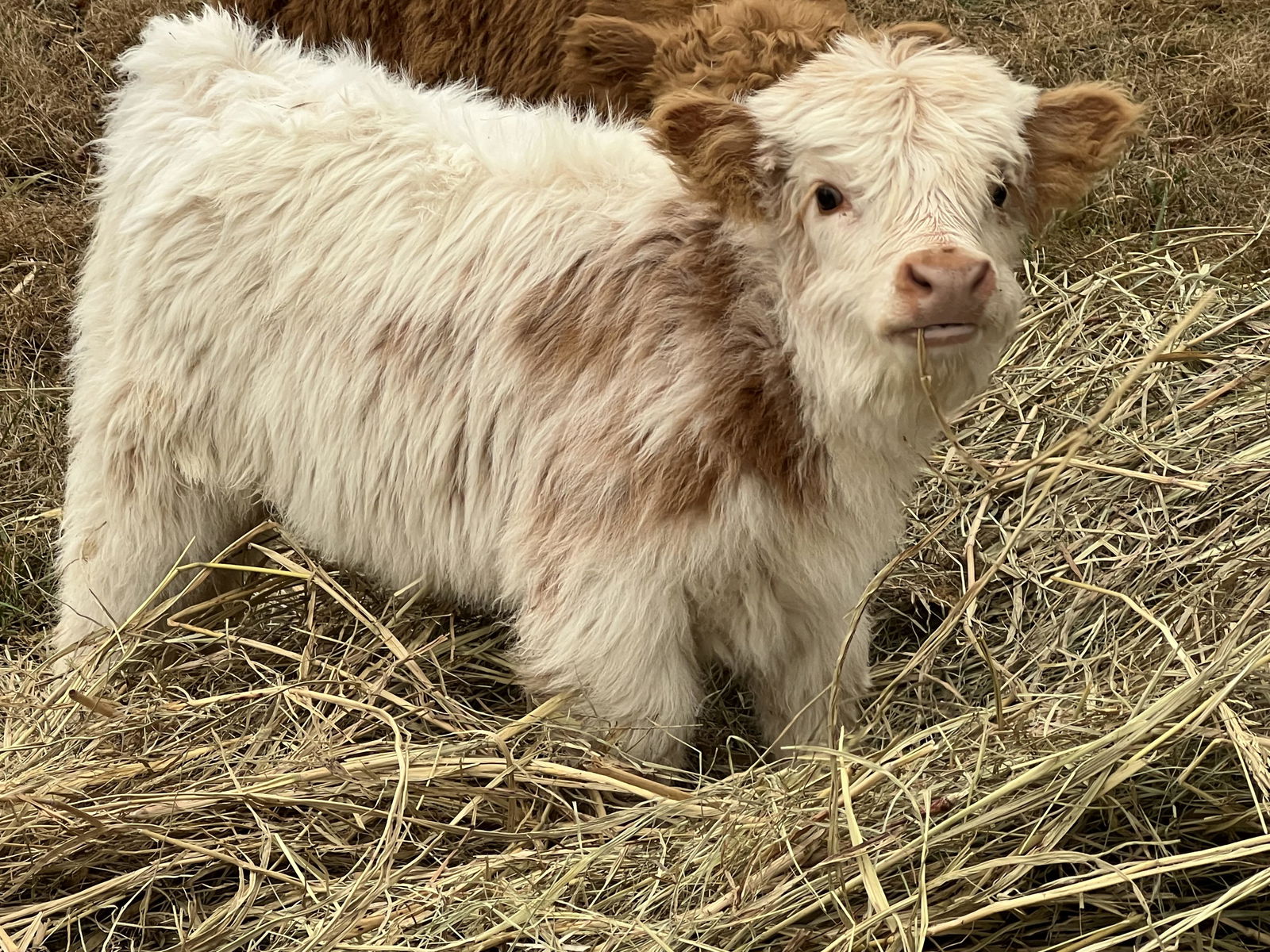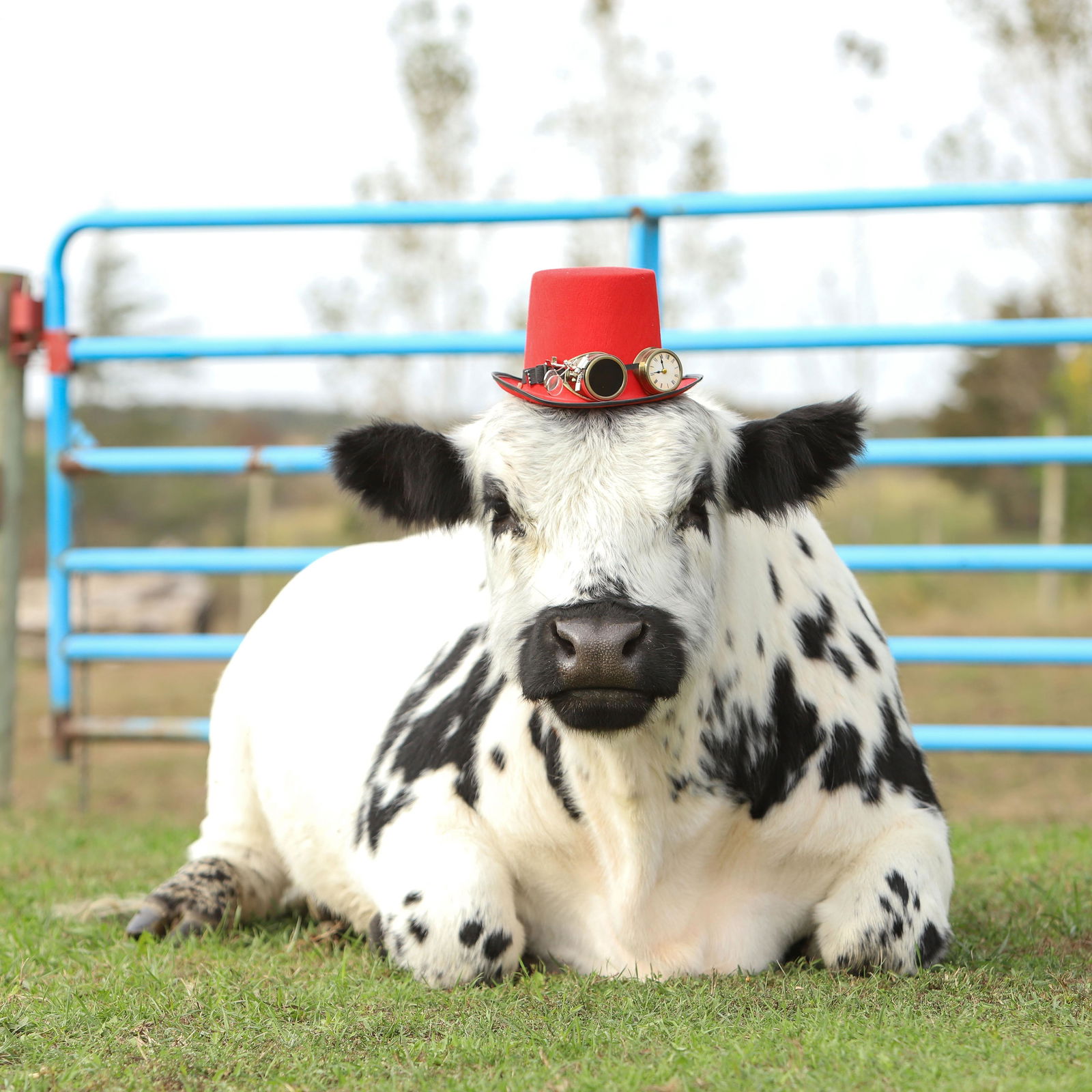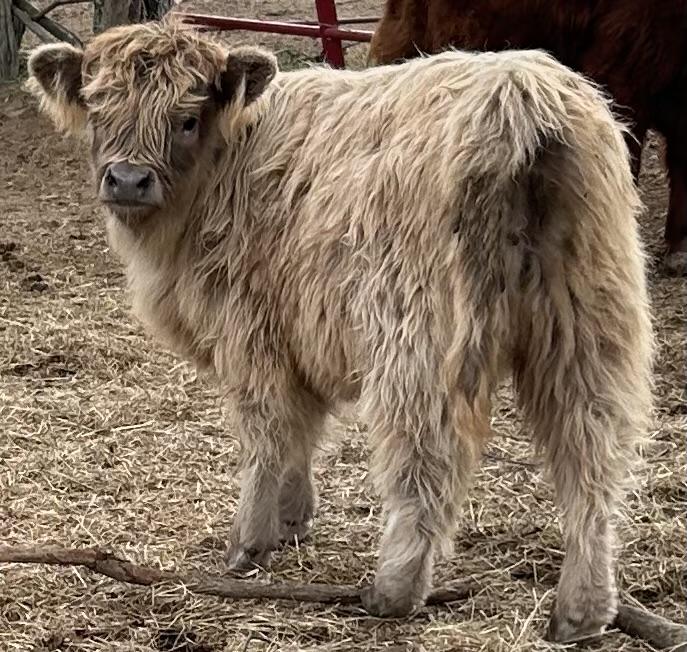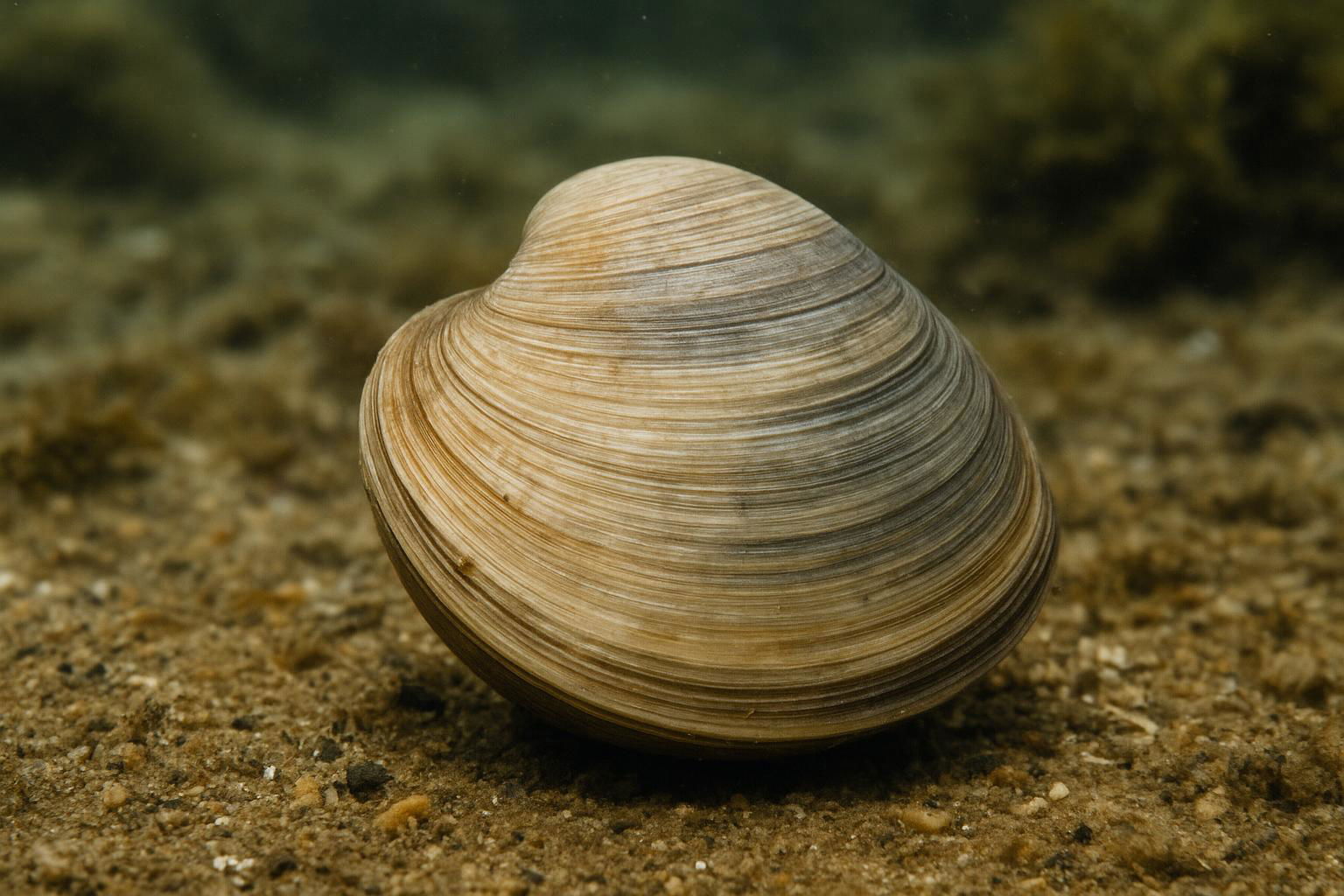
Hard Clam
Mercenaria mercenaria
The Hard Clam, scientifically known as Mercenaria mercenaria, is a bivalve mollusk native to the eastern shores of North America. Often referred to as the quahog, this species is distinguished by its thick, rounded shells that are typically grayish-white on the exterior, with a smooth, polished interior often marked in shades of purple. Hard Clams possess a strong, muscular foot, enabling them to burrow into sandy or muddy substrates where they reside. They are filter feeders, drawing in water through a siphon to extract plankton and other nutrients.
The Hard Clam can grow to a shell length of about 4 inches, though clams of this size can be decades old. They play a significant ecological role in their environments, contributing to water purification and serving as prey for various marine species. In human contexts, the quahog holds economic value, particularly in the seafood industry, where it's harvested extensively. Culturally, it is also known for being used by Indigenous peoples for wampum bead production. Hard Clams thrive in estuarine conditions, with preferences for brackish waters and temperatures ranging from 0°C to 25°C. Their remarkably long lifespan and economic importance make them a critical species for coastal ecosystems and local economies.

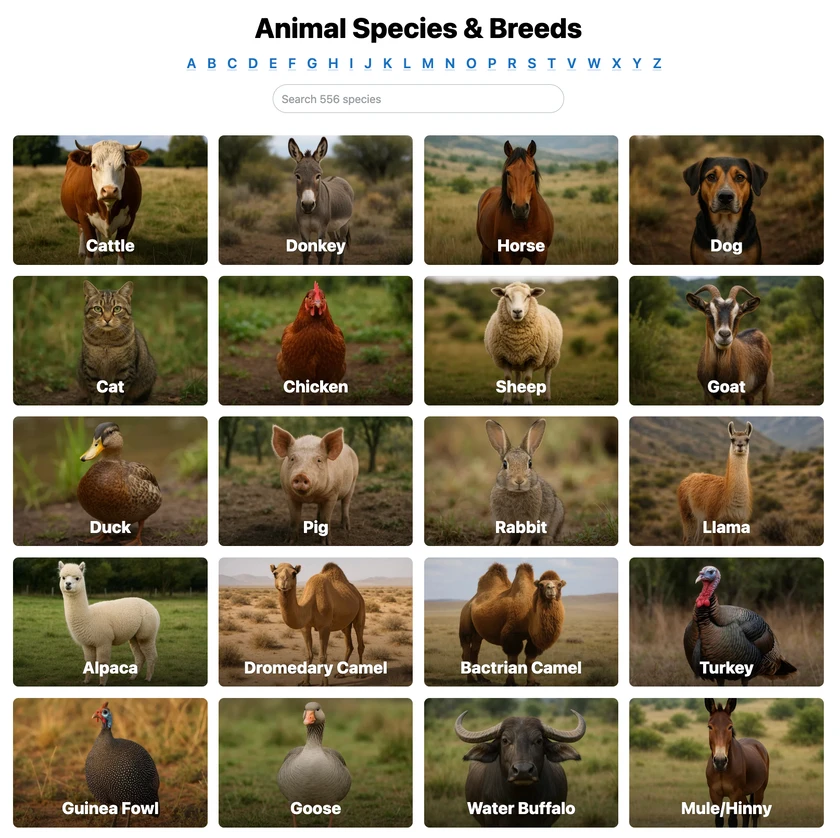 All Species & Breeds
All Species & Breeds
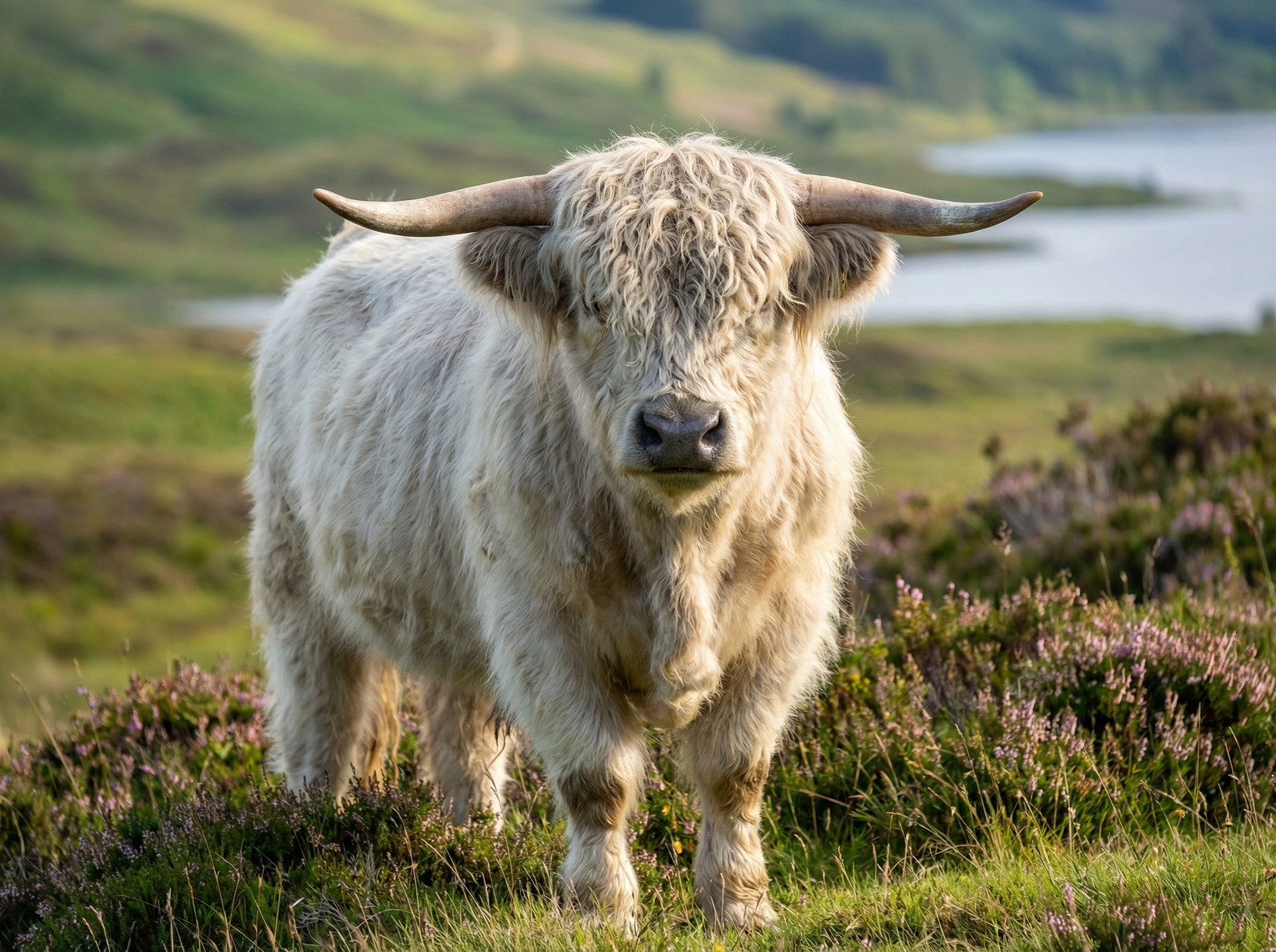 Highland Cattle
Highland Cattle
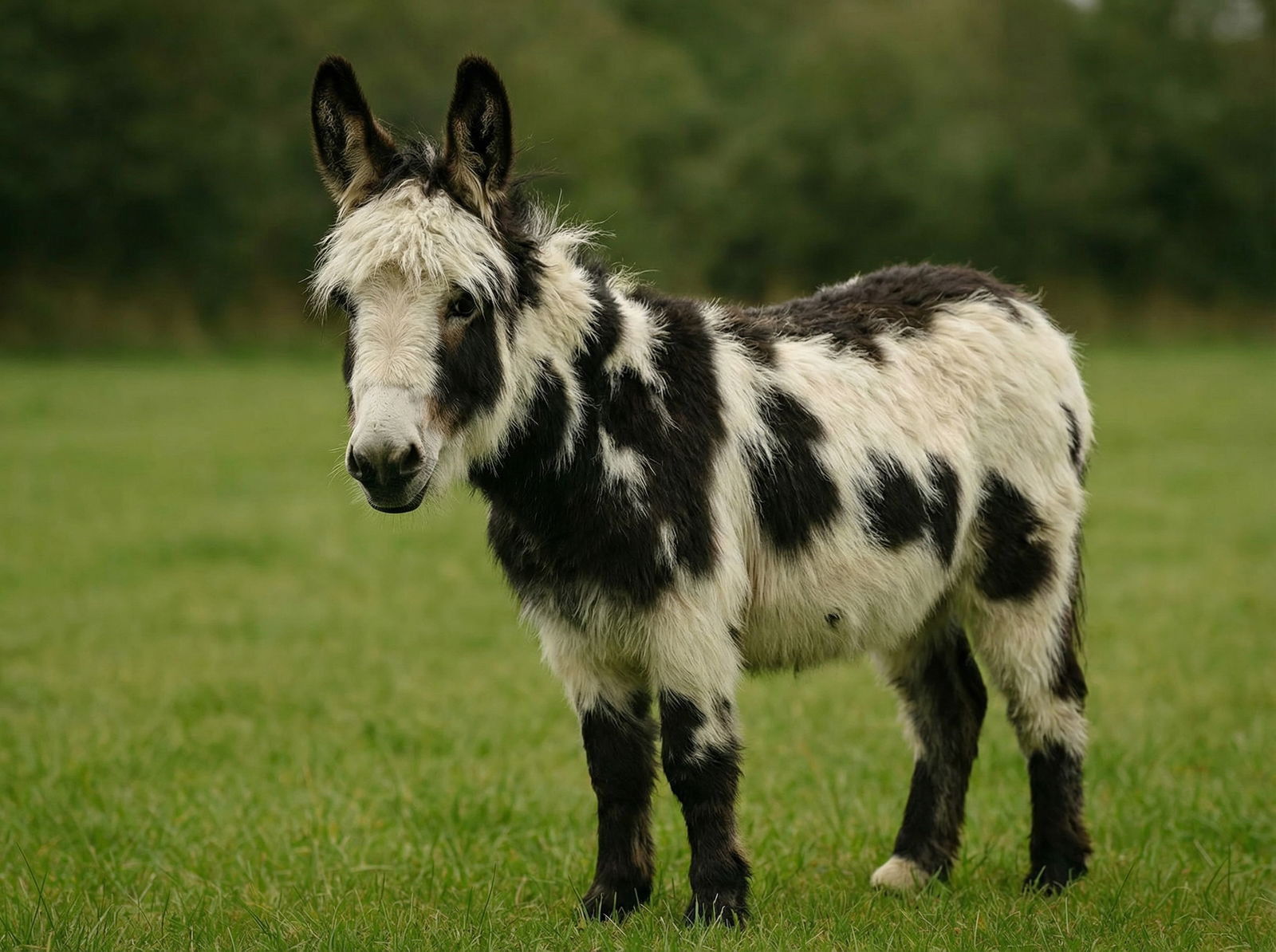 Miniature Donkeys
Miniature Donkeys
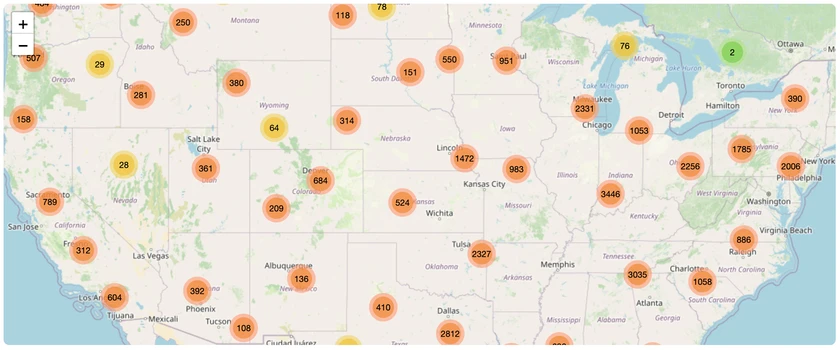 All Species Directory
All Species Directory
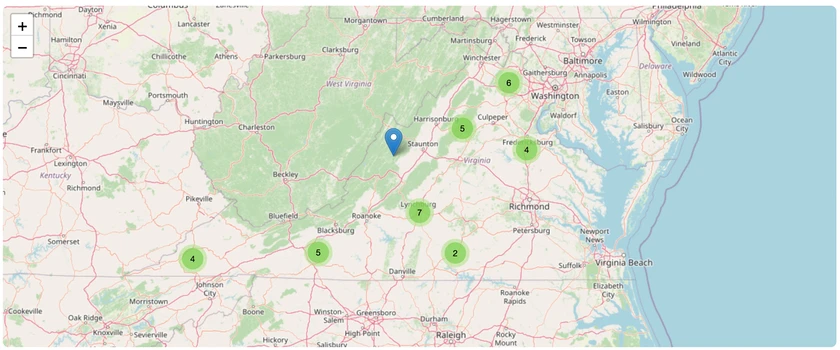 Highland Cattle in Virginia
Highland Cattle in Virginia
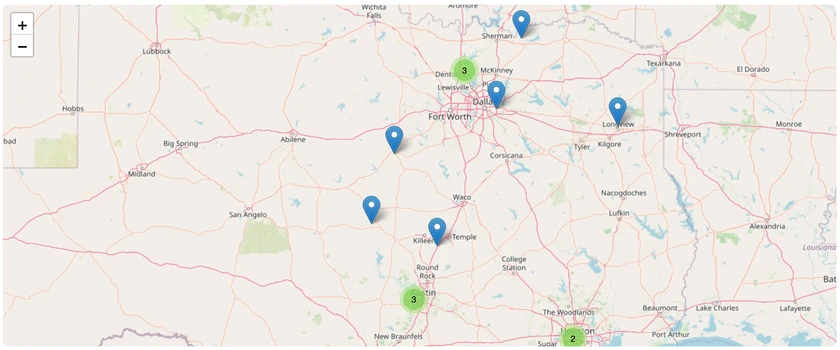 Miniature Donkeys in Texas
Miniature Donkeys in Texas
